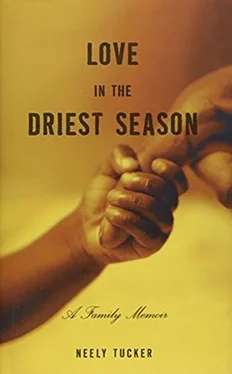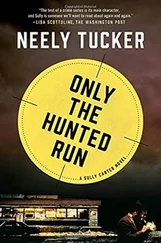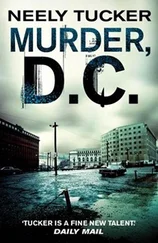A year or two before Rhodesian prime minister Ian Smith declared in 1965 that whites would rule Rhodesia for one thousand years, George Wallace in Alabama had bellowed: “I draw the line in the dust and I say… segregation now, segregation tomorrow, segregation forever!” in his gubernatorial inauguration speech. Martin Luther King Jr. published “Letter from Birmingham Jail” the same year an African nationalist and schoolteacher named Robert Mugabe was jailed in Zimbabwe. When Smith was using the Selous Scouts to terrorize blacks, the Ku Klux Klan was burning crosses across Mississippi. One night, they staged cross burnings in sixty-four of Mississippi’s eighty-two counties, just to show they ran the place. A man named Byron De La Beckwith shot Medgar Evers in the back; mobs of young white men beat marchers, activists, and the Freedom Riders. In one of the most notorious incidents of the era, Klansmen killed three civil rights workers-“two Jews and a nigger,” in local parlance-outside of Philadelphia, Mississippi.
While Rhodesia was hit with sanctions by the United Nations and became an international pariah, it was Mississippi that most horrified Americans. Nina Simone didn’t sing “Georgia Goddam,” Anne Moody didn’t write Coming of Age in Alabama, and later the movie wasn’t called Louisiana Burning. It was we, in rural white Mississippi, who seemed to insist on becoming the South’s symbolic heart of darkness.
It was in this season of segregation and despair that I was born in Holmes County, the poorest, most predominantly black county in the poorest, most predominantly black state in America. The land straddled the low-slung hills of central Mississippi and the fertile edge of the Delta, a place where three of every four faces were black, a place so impoverished and forlorn that it sometimes seemed only the soil was rich. Stands of pine trees mixed among the muddy creeks and towering oaks and then the land sloped away, down a kudzu-covered place called Valley Hill, the last incline for more than a hundred miles. The Delta’s flat fields stretched into the distance, a vast plain of black dirt and stagnant backwaters that ran all the way to the levee and the broad brown river, the ever-rolling Father of Waters, that gave the state its name. On a slate-gray afternoon in November-rain falling in a steady drizzle on the endless rows of picked-over cotton stalks and the trailers left by the side of the road and the sleepy wooden churches and the graveyards of the faithful and the tin-roofed barns and the shotgun shacks-it was a place that soaked into the marrow of the bones and pooled there, never to leave.
We lived in Lexington, a community of about two thousand, and later outside the larger town of Starkville, eighty miles east, where we raised sheep and cows. My father, Duane, was the local assistant county agent working his way up in the Cooperative Extension Service, a state and federal agency that helped farmers with crop and livestock problems. My mother, Elizabeth, whom everyone called Betty, played piano or organ in the Southern Baptist church. My older brother, Duane junior, whom everyone called Shane, and I would sometimes tag along with my father in his pickup truck as he went from farm to farm, turning from the narrow paved highways to gravel roads, the long trails of red and brown dust swirling out behind us.
Late at night on our small farm, I would curl beneath my sheets to listen to the train whistle blow for the clearing. I would sneak outside and watch it pass in front of our house in the moonlight. I stood in the yard, dew soaking my feet, and looked up past the oaks and pines to the stars above, feeling the earth rumble with the train’s passing. I loved the place at such moments, I truly did. The sway of the trees and the whisper of the wind created a language all their own, and the night seemed warm and beautiful and secret.
On the long summer days and endless evenings, on rainy winter afternoons, with nowhere to go and not much to do, I began to lose myself in books and stories, imagining a world far from our sleepy pastures. I would start turning the pages and our house would fade away, replaced by another world that came from nowhere. Before I was thirteen, I read Treasure Island and Huck Finn and all of the Hardy Boys books and the Old Testament (when I was bored in church, which little boys often are) and Lord of the Rings and things that were way over my head, including Ernest Hemingway and Papillon, the memoirs of Henri Charrière, a French inmate who escaped from Devil’s Island.
Those worlds seemed as real and important as anything going on in our little town-and a lot more exciting. I longed not just to watch the train go by our house, but to catch an armload of the next freight train running and ride it out of there, traveling to some of the places I read about. Then I would go sit on the railroad tracks and wonder what the real fairy tale was. For at least 150 years, with the exception of one or two great-aunts, everyone in my family had been a farmer in rural Mississippi.
But an era was coming to an end, and even the Magnolia State’s “closed society,” as one landmark book described it, was finally opening itself to the larger world. As the calendar pages fell and the years turned into the late 1970s, the Deep South’s more vicious forms of racism began to ebb. The racial confrontations that roiled the country moved to the urban North. With the civil rights crusades fading into memory, with southern apartheid at least officially dismantled, small-town black and white teenagers in Mississippi began to try something none of our ancestors had-to grow up together. It was painful, it was odd, and sometimes it was surreal.
The most bizarre example of the latter could be found on the college football field, the Deep South’s Saturday afternoon altar. In the 1970s, the University of Mississippi’s football team was integrated, but the school still proudly went by the nickname of “Ole Miss” (the phrase slaves used for the plantation owner’s wife in the antebellum days-as opposed to his daughter, who would be the “young miss”). The school’s teams were called the Rebels, a reference to Confederate soldiers. That moniker, selected in the 1930s, came into play when the student body’s other popular choice of the era, the Ole Massas (as in the slaves’ name for the plantation owner), proved to be something of a tongue twister: the Ole Miss Ole Massas.
Nearly half a century later, a football game in Oxford looked like this: A black descendant of slaves with “Ole Miss” written on his helmet would score a touchdown for the Rebels. The lily-white school band would burst into “Dixie,” the battle song of the Confederacy. Thirty thousand white fans would start waving the red and blue Confederate banner, the battle flag beloved by the Ku Klux Klan. And nobody acted like we all needed to be committed.
It could be profoundly weird off the field too. My family and our kind didn’t care for Ole Miss (we were Mississippi State fans, a far more blue-collar crowd that rang cowbells after touchdowns), but in elementary and high school my parents scraped together the dollars to send me to one of the “private” all-white academies set up after integration, the last-ditch creation of the White Citizens’ Councils. The irony was in the music we played at our all-white homecoming dance: Earth, Wind and Fire; Kool and the Gang; Rick James; the Gap Band. The most popular comedian, with no one in second place, was Richard Pryor. When I took to the football field on Friday nights, I wore a bandana under my helmet, like J. C. Watts, the star Oklahoma quarterback, and a pair of wristbands emblazoned with number 22, which I had cadged from my hero, a Mississippi State wingback named Danny Knight. Watts and Knight were black, I idolized them both, and neither could have come to see me play because the only black person allowed on our school grounds was the janitor.
Читать дальше











